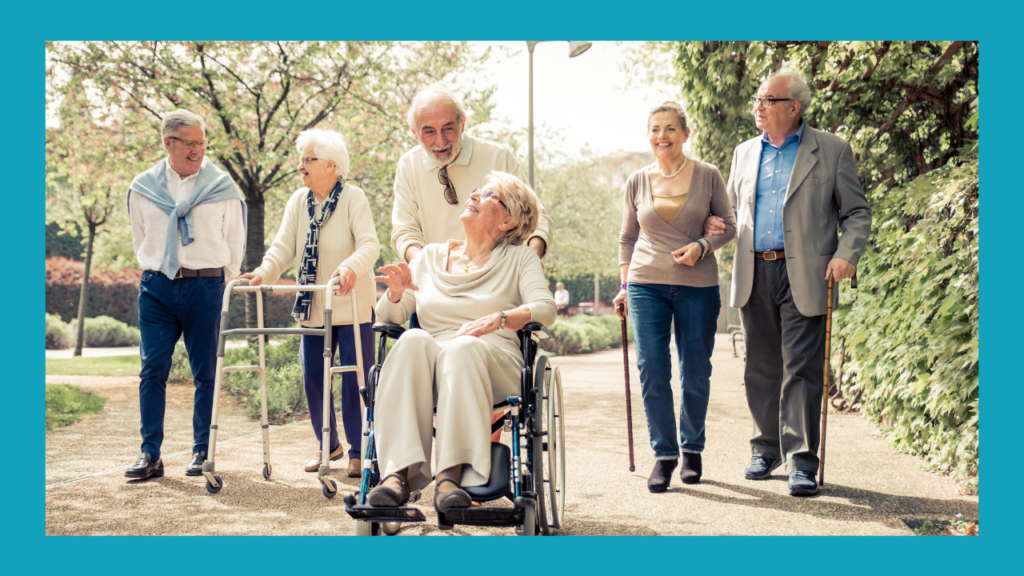
Aging in place is a dream for many. It is a chance to step off the treadmill of life and slow down to enjoy life’s little pleasures. It is a privilege that not everyone can have.
However, aging in place comes with its own set of challenges. Therefore, it’s important to prepare for them in advance. All it takes is a little self-care and a tiny bit of patience.
The first step is understanding your own needs. This includes taking steps to maintain physical, mental, emotional, and spiritual health.
Healthy vs Unhealthy Aging
The difference between healthy aging and unhealthy aging is simple: healthy aging involves maintaining our physical, mental, emotional, and spiritual health, while unhealthy aging involves neglecting these aspects of our life.
In our 20s, we may feel like we can do anything! We have the drive and the ability to take on new challenges, and we seem to have all the energy to handle anything.
In our 30s and 40s, we start to slow down a little bit. We may have more trouble with fatigue or pain because of stress and our body is now starting to show signs of wear and tear.
Once we hit 50+, our body will no longer be able to keep up with everyday demands.
The truth is, aging is just a fact of life. We’re all going to get older, and it can be hard to maintain our health as we age. But there are ways to help us get back on track!
 Physical Health Tips for Aging in Place
Physical Health Tips for Aging in Place
Physical health is a crucial component of healthy aging. This includes maintaining a healthy diet, engaging in regular exercise, getting enough sleep, and managing chronic health conditions.
1. Maintain a healthy diet— A healthy diet can help prevent chronic health conditions and maintain a healthy weight. Aim for a balanced diet that includes plenty of fruits, vegetables, whole grains, lean protein, and healthy fats.
2. Engage in regular exercise— Physical activity is important for overall health, but it’s especially important when we’re trying to maintain an active lifestyle as we age. Exercise doesn’t just help build muscle or burn fat; it helps keep joints flexible and strong. Plus, it also helps prevent falls and it is a great mood booster!
3. Get enough sleep—If we’re not getting enough sleep on a regular basis, it can affect our ability to concentrate and make decisions. The first step is simple: set aside time for a restful sleep every day, no matter what else is going on in our life!
4. Manage chronic health conditions— Chronic health conditions such as diabetes or heart disease can impact physical health. By working with a healthcare provider, we will be able to manage these conditions effectively.
Mental Health Tips for Aging in Place
Mental health is also important as it affects our overall well-being. This includes staying mentally active, managing stress, and seeking help if needed.
1. Stay mentally active— Engage in activities that challenge the mind, such as crossword puzzles, reading, or learning a new skill.
2. Manage stress— Stress can impact mental health and well-being. But we can fight it by practicing stress-management techniques, such as deep breathing, meditation, or yoga.
3. Take a Break— Things can get too overwhelming, therefore, it is important that we take time for ourselves every day whether it’s going for a walk around the block or taking a nap. We deserve to give ourselves some space so that we can recharge.
4. Seek help if needed— Mental health challenges are not something to be ashamed of. We should never hesitate to ask assistance from a healthcare provider or a mental health professional.
 Emotional Health Tips for Aging in Place
Emotional Health Tips for Aging in Place
Emotional health involves maintaining positive relationships and managing emotions effectively.
1. Stay connected to social networks— Social connections can help prevent loneliness and isolation. Maintaining relationships with family, friends, and community members will give us the chance to create more memories.
2. Practice self-care— Taking time to do things that bring us joy and relaxation, such as reading, gardening, or spending time in nature is a great way to keep our emotional health in chack.
3. Manage emotions effectively— We are not victims of what we feel. Hence, we should learn how to recognize our emotions and use our power of choice to initiate a desirable response. We can start by practicing techniques for managing emotions such as deep breathing or journaling.
Spiritual Health Tips for Aging in Place
Spiritual health involves finding meaning and purpose in life.
1. Find activities that bring meaning and purpose— Wholesome activities such as volunteering, mentoring, or pursuing a hobby can provide us with a sense of purpose and meaning, while also connecting with others.
2. Connect with a spiritual community— Joining a spiritual community can provide the sense of connection and support we need to get through challenging times.
3. Practice gratitude— Having an appreciative spirit is proven to impact our overall health. Moreover, practicing gratitude can bring us greater joy and help us cultivate a more positive outlook in life.
Takeaway:
One might think that aging gracefully means simply hitting the gym or cutting back on our sodium intake—but there’s more to it. Aging should be about enjoying life more fully—and enjoying it means doing things that make us feel good!
Knowing the difference between healthy and unhealthy aging is the key. By taking steps to maintain our physical, mental, emotional, and spiritual health, we will be able to enjoy our golden years with dignity and grace.
Aging in place is a wonderful thing. It allows us to age in style, while being surrounded by the things we love and the people we love. As much as it is challenging, preparing to age in place can be rewarding as we look back on our life and see how far we’ve come.
 Physical Health Tips for Aging in Place
Physical Health Tips for Aging in Place Emotional Health Tips for Aging in Place
Emotional Health Tips for Aging in Place
Recent Comments